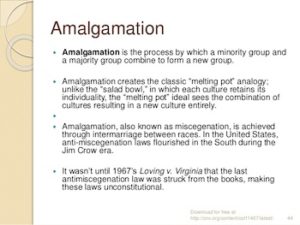
Anti-Lincoln Politicalad in 1864
*On this date, in 1664, Maryland passed the first Anti-Amalgamation law. This law was intended to prevent marriages between Black men and English women. It was an early white-American effort to avoid the intersectionality of gender, color, class, religious identity, nationality, and more.
The Governor of the state at the time was Sir William Berkeley. Interracial marriage was a fairly common practice during the colonial era among white indentured servants and black slaves, as well as in more aristocratic circles. Subsequently, similar laws were passed in Virginia in 1691, Massachusetts in 1705, North Carolina in 1715, South Carolina in 1717, Delaware in 1721, and Pennsylvania in 1725. Intermarriage bans were lifted during Reconstruction in the early 1870s but were void by the decade's end. It wasn't until the 1950s and 1960s that these laws were lifted again.
However, in October 1958, a Virginia grand jury indicted Mildred Loving and her white husband for violating the state's anti-miscegenation laws. Each pleaded guilty and received a one-year sentence. Their sentences were suspended provided they left Virginia and did not return for twenty-five years. The Lovings appealed that decision to the U.S. Supreme Court in Loving v. Virginia 1967. and won. The Supreme Court struck down the Virginia law and similar laws in fifteen other states.
Statistics show that in 1991, 231,000 Blacks married to whites, about 0.4 percent of the total number of married couples in America. Still, according to the 1994 National Health and Social Life Survey, 97% of Black women are likely to choose a partner of the same race. Many black women, the culture bearers, oppose the idea of interracial marriage, opting instead for racial strength and unity through the stabilization of the Black family.
Historic U.S. Cases 1690-1993:
An Encyclopedia New York
Copyright 1992 Garland Publishing, New York
ISBN 0-8240-4430-4